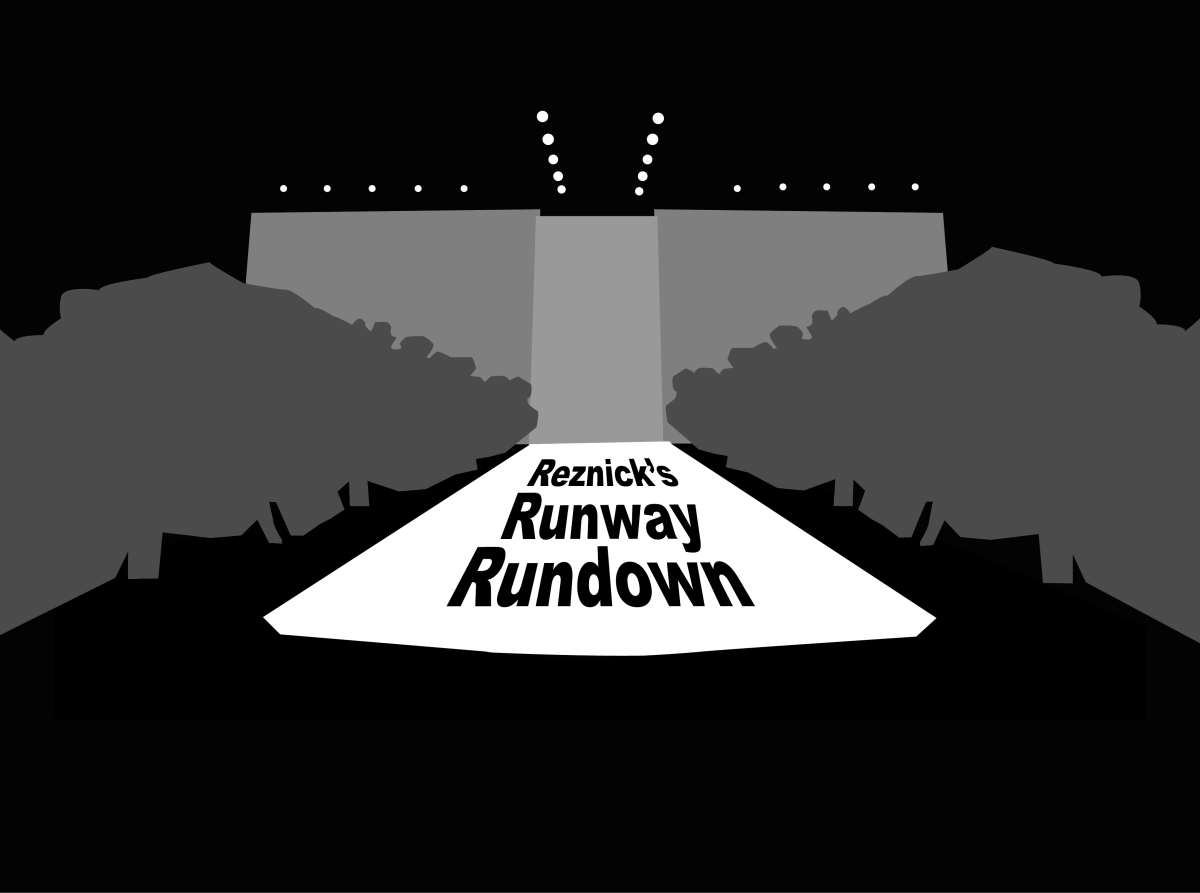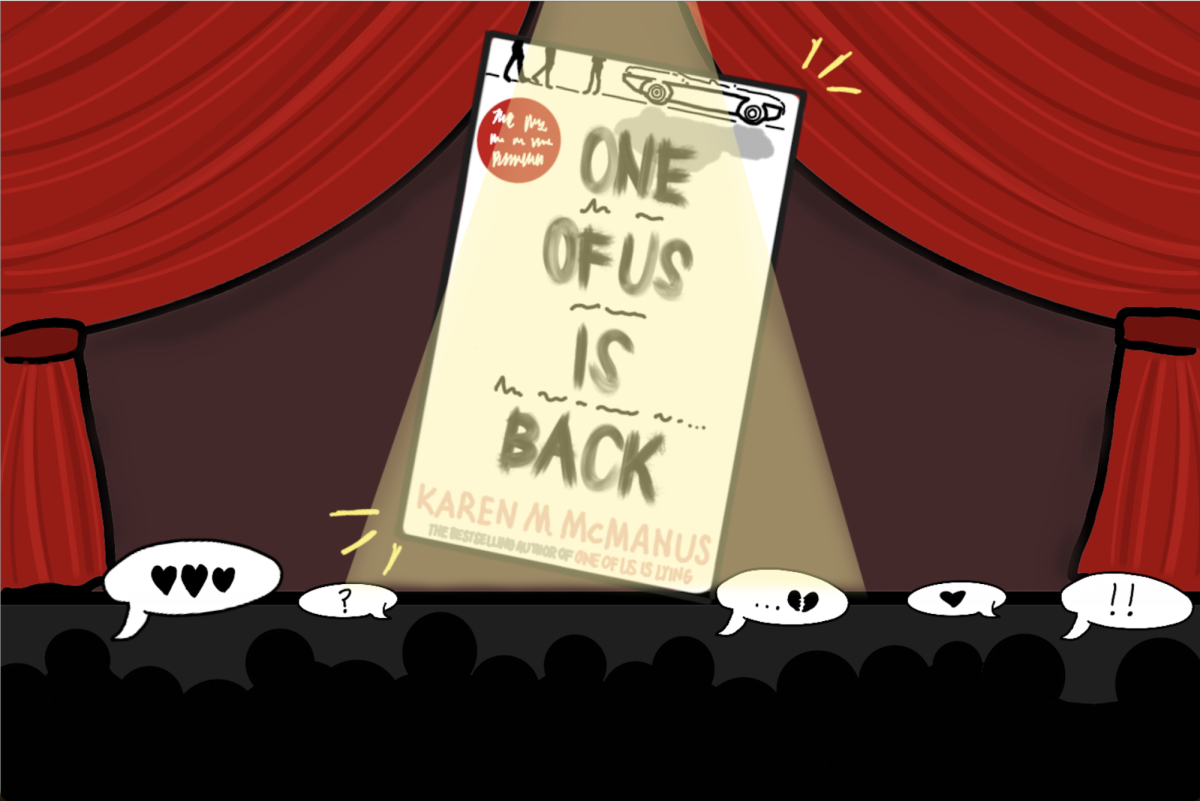Born in a Muslim household and raised in an Islamic nation, Kablawi grew up in an environment that was both accepting and tolerant of his faith. When he first moved to London from Abu Dhabi, it took him time before he could adapt to a community where he was a minority.
“Moving here was very different because suddenly I was not in a great majority with my religious beliefs, and so it took time for me to adjust,” he said. “I have constantly found myself trying to repeat my religious views and justifying my beliefs with people.” Faith and religion are notions inexplicably important to a great deal of students.
Social Studies Teacher Christopher Wolf defines faith as, “a set of beliefs that one holds based on a presumption rather than fact about what really motivates or operates the world.”
This concept of faith, however, manifests itself in many different ways throughout the school.
Although 86 percent of respondents to a survey sent out by The Standard involving 227 students believe the school is a safe environment to express one’s religious beliefs, there are some who think differently. One anonymous survey responder says that his friends portray highly anti-Christian behavior, which he believes to be disrespectful.
“They treat Christianity like it’s a joke, celebrated and practiced only by fools and those without knowledge,” he said. “They show little knowledge in which to even begin to explain this behavior, and when asked to stop, have only continued in this ridicule of religion and beliefs.”
Kablawi noted that while he does feel safe voicing his religious beliefs, it does depend on person to person. “I’m [justifying my religious beliefs] less often now but it’ll still happen where I’ll say I’m Muslim and people will make certain assumptions,” he said.
Kablawi believes that, overall, classes at School do a satisfactory job representing all religions, however, he does see an imbalanced attitude towards religious equality outside the classroom. This year, Hanukkah and Christmas were recognized but Eid, a Muslim holiday, was forgotten.
“It’s not [during the same season] so it’s not part of the festive season but at the same time I felt a little bit left out that there were people who were celebrating Christmas and it was brought up to the student body. Islam and the Muslim tradition was not even an announcement,” Kablawi said.
But Islam for Kablawi is more than just a religion. “It provides a balance, maybe not directly a moral code but it gives a lot of answers to a lot of faith-based questions,” he said.
Marisa Etre (’15), one of the Christian students in the High School, echoed a similar feeling. Rather than interpreting the Bible verbatim, she uses it as a moral compass. “I don’t read the Bible every day, its more just the basic ideas of kindness and morality,” Etre said.
Surya Dhir (’17) feels the same way about his religion. Going back generations, Hinduism is a line that can be easily traced through the ancestors and family members of Dhir. Although it was only natural that Dhir was also raised believing in Hinduism, he feels as though it was his choice entirely and not forced by his family.
Similar to Etre, Dhir has accepted Hinduism because he believes in the principles and ideals that the religion entails. He recounts how the Hindu theory of Karma is something that has constantly affected his decisions in life, and how it has “turned him off some of the more unjust actions that he would have otherwise committed.”
“At my old school in [Grade 9], kids were starting to experiment with drugs, and so were even some of my friends. Without Hinduism I probably would have at least experimented one time,” he said. “Hinduism by itself wasn’t one of the causes for me not to turn to drugs, but it was definitely a factor.”
Hinduism also serves as a means of reassurance for Dhir, especially when in times of need or uncertainty. “If I’m in doubt or if I’m in a situation where I feel tense or uncomfortable, I feel as though I can automatically rely on God or the general concept of God,” he said.
While 49 percent of surveyed students classify themselves as ‘religious’, some feel as though religion is an evaded topic. “There does seem to be an assumption that religion is a private matter and not necessarily a matter for this school,” Wolf said.
Dhir believes that the lack of religious presence inside school could be because most students don’t practice a religion. With atheism on the rise in most major European countries and America, according to a 2015 sudy by The Telegraph, it’s no surprise that 51 percent of those surveyed are non-religious.
“I’d say that the majority of my friends, at least a lot of them, don’t really have [a faith], a lot of them are just atheists, and when I’ve brought up the issue of religion they did say that they did not have a God,” Dhir said.
Etre’s choice to remain slightly more conservative about her religious expression comes from not wanting to cause controversy. She explained she tries to avoid “conversations [about] my religious beliefs versus someone else’s, because there are so many different religions and we all kind of have different beliefs.”
Wolf understands religion’s downplayed presence to be because of western intellectual culture. “I would say that yes, students need to be educated to what these various religions are to understand the people around them and to be sensitive to their religious concerns, but I don’t know that the school needs to proselytize.”
To Wolf’s knowledge, the school does just that. In Grade 9, students learn about major belief systems, including Confucianism, Buddhism, Islam, Christianity and Judaism. The students are not taught these religions as an element of faith per se, but rather “we are looking at it historically, so we want to talk about the origins, we want to talk about the influence, the diffusion and spread of the religions,” Wolf said.
While religious education in school often differs from what students may learn in their faith circles, some subjects contradict students faiths.
With such a rich profusion of religious students at school, sometimes it can be hard for students to accept certain aspects of both religion and science, as just over 20 percent of High School students do not believe science and religion can coexist.
High School Science Teacher Jude Ruff remembers one instance when a student of her’s who was extremely strong in science suddenly began dropping in his grades. After a private conversation, she discovered that the topic of evolution conflicted with the teachings from his religion, and thus it was interfering with his ability to learn.
“We did not resolve it,” she said. “The main thing was for me to explain to him that I don’t judge him based on [his religious beliefs] and we tried to work through it and he did ok.”
Because of experiences like these, Ruff tries to keep her religious views out of her work and teaching, as she believes that it’s important not to use her authority as a teacher to assert what one’s faith and religious views should be.
“When students have questioned [religion] I try and skirt it for that reason, without going into the big details,” she said.
Dhir has also felt unsure about his religion because of science, explaining that there are times when the beliefs of science and his religion disagree with each other. “At those times I find it harder to fully believe in Hinduism because in reality, people might talk about experiences or miracles or coincidences that may have occurred but apart from that there is no underlying data that supports the religion,” he said. “Science, you have people doing research day upon day and so you have tons of data but with religion it’s inevitably just a collection of stories.”
Etre has also struggled in the past with contradictions in her religion. She recounts how at her old school her teacher, who was Jewish, would often make underlying comments about religion as she was teaching, which would sometimes confuse Etre. “I felt really conflicted and I remember going home and saying to my mom that she’s saying this part is not true and then it kind of made me realize that there’s a separation in some ideas,” she said.
But Etre has found a solution to her problem, focusing on the way faith affects her as a person rather than trying to understand the literal meaning of Christianity. “Because I am not so focused on the literal meaning of everything in my religion and what we’re taught in church, I think I realize that it’s more of the way your faith affects you as a person rather than the historical teachings in the Bible,” she said.
Kablawi has also found it arduous at times to stay committed to his faith, but for reasons other than science. As he recently came out as gay, Kablawi was conflicted as he believed this was something his religion did not tolerate. “I have questioned my faith a lot, mostly related to my sexuality because [being gay] that’s not something that is really appreciated in Islam at all. I know what I feel is right so why should faith tell me that it isn’t?” he said.
But Kablawi realized, just like Etre, that instead of trying to understand the literal meaning of Islam, the core values and pillars of what Islam teaches were more important. “Looking back and reading the Quran, it’s a lot about acceptance and tolerance and using the faith to become yourself,” he said. “It’s about following God as he made you, and that’s given me the opposite effect that I previously had,” Kablawi said.







